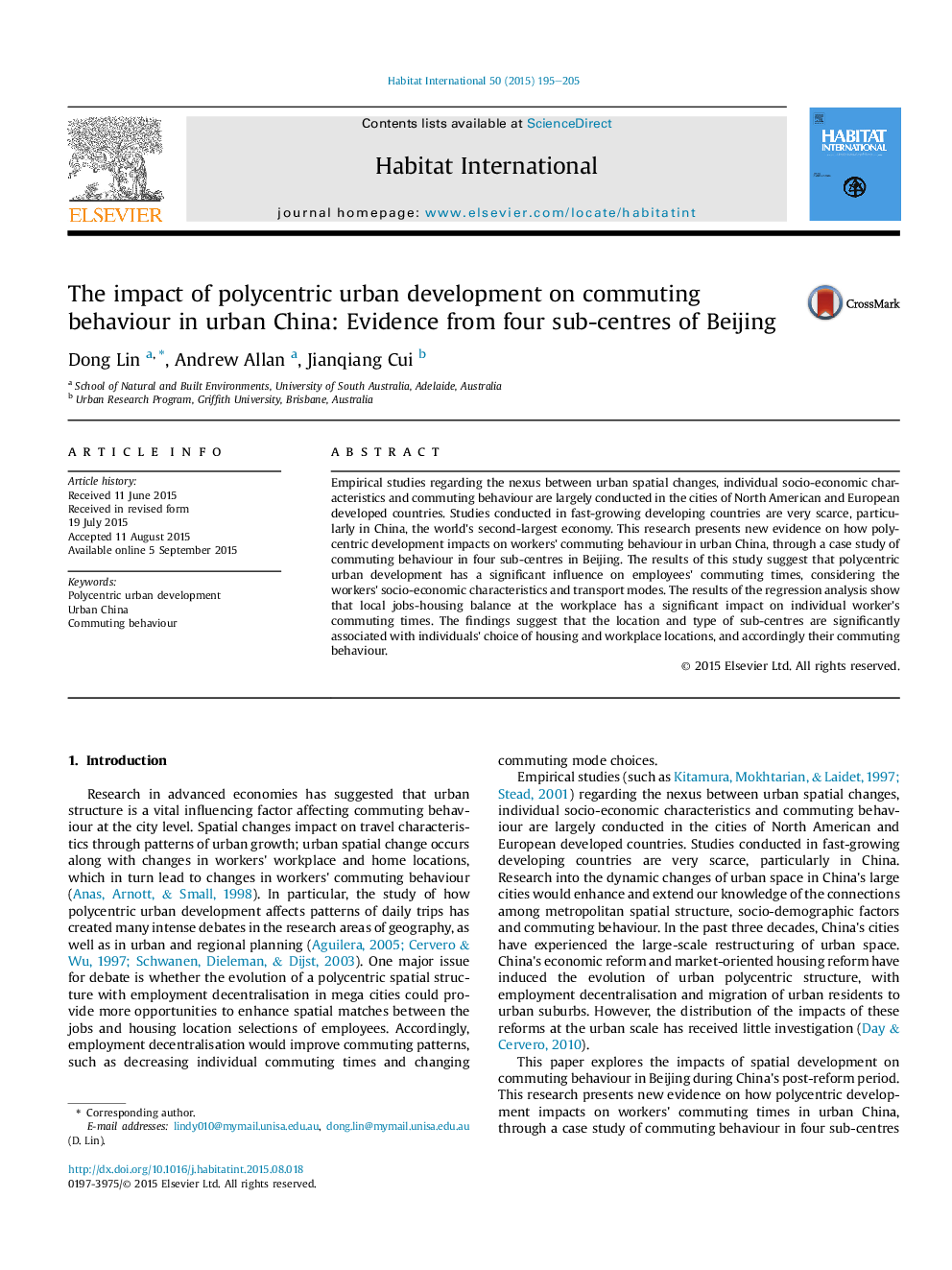| Article ID | Journal | Published Year | Pages | File Type |
|---|---|---|---|---|
| 7455918 | Habitat International | 2015 | 11 Pages |
Abstract
Empirical studies regarding the nexus between urban spatial changes, individual socio-economic characteristics and commuting behaviour are largely conducted in the cities of North American and European developed countries. Studies conducted in fast-growing developing countries are very scarce, particularly in China, the world's second-largest economy. This research presents new evidence on how polycentric development impacts on workers' commuting behaviour in urban China, through a case study of commuting behaviour in four sub-centres in Beijing. The results of this study suggest that polycentric urban development has a significant influence on employees' commuting times, considering the workers' socio-economic characteristics and transport modes. The results of the regression analysis show that local jobs-housing balance at the workplace has a significant impact on individual worker's commuting times. The findings suggest that the location and type of sub-centres are significantly associated with individuals' choice of housing and workplace locations, and accordingly their commuting behaviour.
Keywords
Related Topics
Social Sciences and Humanities
Social Sciences
Development
Authors
Dong Lin, Andrew Allan, Jianqiang Cui,
